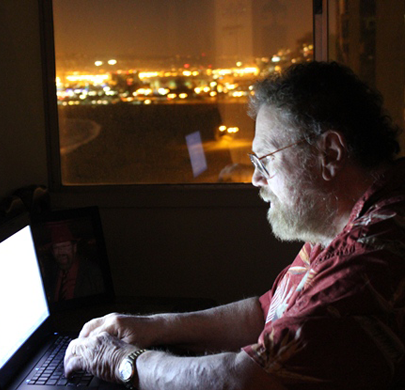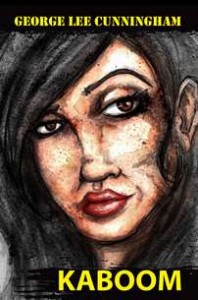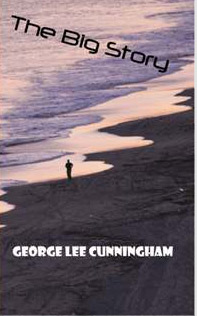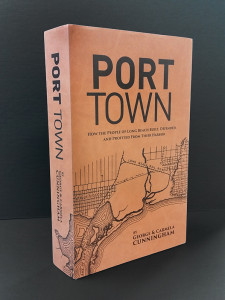ARCHIVED POSTS
-
March 27, 2017
It’s Not Easy Being Green
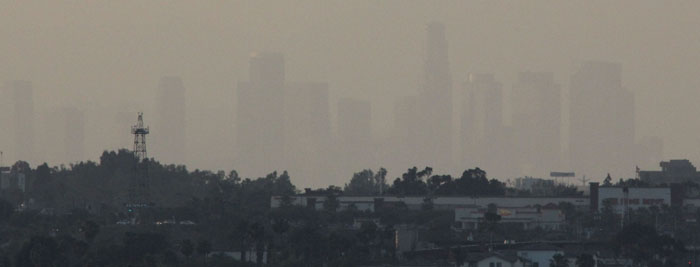
LA THROUGH THE HAZE (photo by George Lee Cunningham)
A little more than a year ago Carmela and I moved into a new home, located in a windy pass surrounded by mountains. We slowly began making the new house our own, which means among other things, buying an outdoor table for the patio. The first chance we got, we invited our cousins who live around the corner to come over and enjoy dinner and the balmy weather.
The husband, let’s call him Butch, is retired, but he has a part-time business as an exterminator. Over dinner, he started telling us what we needed to do to keep nasty pests at bay. We responded by telling him that we are environmentalists who don’t want to add to the silent spring that Rachael Carson warned about back in 1962.
For those not familiar with Ms. Carson, she said that when we spread poison over the land, it slowly seeps down like a silent spring to the water table below – that same water table that we all depend on for life. Carmela and I sure didn’t want to add to that problem.
We told Butch that we understood that we had moved to an area that has its fair share of wildlife. Coyotes, bobcats, raccoons and skunks are drawn to the neighborhood by the ponds on the golf courses, garbage left outside the pest-proof bins, and domestic pets left unattended outside the safety of their homes. But, we’re weren’t ready to resort to chemical warfare to keep those critters at bay, we told him.
Right about that moment, this giant rat shows up, strolling along the top of the backyard fence, not even a little bit fearful of we humans gathered around the table. We immediately dubbed him Fredrico.
If we give him a name, we thought to ourselves, he will be like an outside pet.
Except, I hate rats. I know that it’s very speciest of me, but they are creepy, disgusting animals that spread disease and multiply at an alarming rate. One of the reasons I am willing to tolerate the coyotes and bobcats is that they kill the rats and eat them.
It’s the circle of life, Simba.
Giving the rat a name, even a kind of cute name like Fredrico, didn’t work. Fredrico had to die, and the sooner the better. So we decided to put out poison in a specially designed box for killing rats.
And while we were at it, there were rats in the attic that needed to be exterminated and there were places along the wall of the house where ants and insects could gain entry, that needed a small chemical barrier to block them and we had already encountered several black widow spiders in the garage. So we reluctantly agreed to a limited amount of chemicals that would allow us to live in our house pest-free.
The pests, a judgmental term for species we don’t really want to be around, could have all the rest of the great outdoors to roam free.
It’s not easy being green.
The truth is, I was an environmentalist before being an environmentalist was cool. But even today, I am not one of the cool-guy environmentalists. For me, being an environmentalist comes naturally – meaning it’s not something that I learned how to do at college. I just grew up doing it.
I didn’t litter – my mom would have slapped me so hard my fanny would have hurt for a week. We didn’t throw away plastic water bottles. We drank our water right from the tap. We picked up after ourselves, we carried our empty coke bottles back to the store for the two-cent-each deposit, and we patched our clothes when they were ripped.
This isn’t about the good old days. There was plenty of bad stuff going on in the good old days that we tend to gloss over in the selective memories of the past. But there were also some good things about the good old days. We kind of lived with what was available. We repaired things rather than throw them away. We washed diapers and used them again. And when kids outgrew their clothes, they were handed down to younger, smaller kids.
The point to all this is that I consider myself a free-range environmentalist, not one of the professional, short-sighted environmentalists, who are so popular today. Professional environmentalists get paid for what they do. I don’t mean to imply that they are not sincere in wanting to protect the environment. Many of them are very nice people, but their perspective is clouded by the fact that being an environmentalist is also their business.
If you work for a big environmental organization, you earn your living pushing programs to clean up the environment, no matter what the cost may be to other people. They are no different than people who work for an oil companies who make their living producing oil that allows people – including environmentalists – to get where they want to go without walking. The truth is if you have a bunch of attorneys on your payroll, you are not going to let them sit around twiddling their thumbs. You’re going to find somebody to sue.
Professional environmentalists seldom do a cost-benefit allowance to see if the damage they are doing to other people is worth the good they are doing by cleaning up the environment. If you want to do your own quick cost-benefit analysis, merely look at the cost per gallon of gasoline in California and in most other states.
It’s not as though environmental groups haven’t done some good stuff. When I first came to California, on most days it was hard to tell that L.A. was bounded by mountains. Now you see the mountains almost every day. But as the environment gets cleaner and cleaner – thanks in large part to environmentalists – the cost of cleaning up the small amount of pollution remaining becomes higher and higher.
Environmentalists, who think of themselves as more pure of heart than the rest of the population, don’t like to think about things like that.
And so they don’t.
– George Lee Cunningham
Do you have a dissenting opinion or any opinion at all on the subject? Contact me at george@georgeleecunningham.com and let me know. Meanwhile, you can always subscribe and get an email reminder of blog postings. Your name will not be shared and you may cancel at any time.
-
Spring Has Sprung

THE FLOWERS THAT BLOOM IN THE SPRING (photo by George Lee Cunningham)
In case you hadn’t noticed, winter ended last week and spring began. The snow is melting off the mountain tops, the wildflowers are in bloom, and the members of the animal kingdom – including we humans – are feeling a little randy. It’s a lovely time of the year, although I have to admit to feeling a bit sad about winter slipping away so quietly.
The garden section at Home Depot is crowded with people buying tomato, jalapeno, and basil plants for their backyard vegetable gardens, and roses, daffodils, and petunias for their front yard flower beds. Soon, the last of the mountain snow will be gone, the wildflowers will begin to droop in the sun, the kids will get out of school, and summer will be upon us with its oppressive heat, high electric bills, and sweaty armpits. But that’s not for another few weeks yet.
We all have our annual rituals, and Mother Nature is no exception. Suffice to say, this is a lovely time of the year, and aren’t we all lucky to be here to enjoy it?
– George Lee Cunningham
-
Lyrics, Poetry and Prose VI
A place to share some words of beauty, inspiration, and fun. This week we feature some well-known verses about smoking cigarettes – which nowadays is no longer politically correct. Click on the name of the piece to get a video or more information. You have some favorites? Please share…
Smoke! Smoke! Smoke! that cigarette
Puff! Puff! Puff!
And if you puff yourself to death,
Tell Saint Peter at the golden gate,
That you hate to make him wait,
But you got to have another cigarette.– Smoke Smoke Smoke that Cigarette Singer: Phil Harris, Writers: Tex Williams, Merle Travis
Here we are out of cigarettes
Holding hands and yawning
Look how late it gets
Two sleepy people by dawn’s early light
And too much in love to say goodnight– Two Sleepy People Singer: Dean Martin; Writers: Hoagy Carmichael, Frank Loesser
Two cigarettes in an ashtray
My love and I, in a small cafe
Then a stranger came along
And everything went wrong
Now there’s three cigarettes in the ashtray– Three Cigarettes in an Ashtray Singer: Patsy Cline; Writers: Eddie Miller, W Stevenson, W S Stevenson
-
March 21, 2017
As a Rule – I Don’t Like Rules
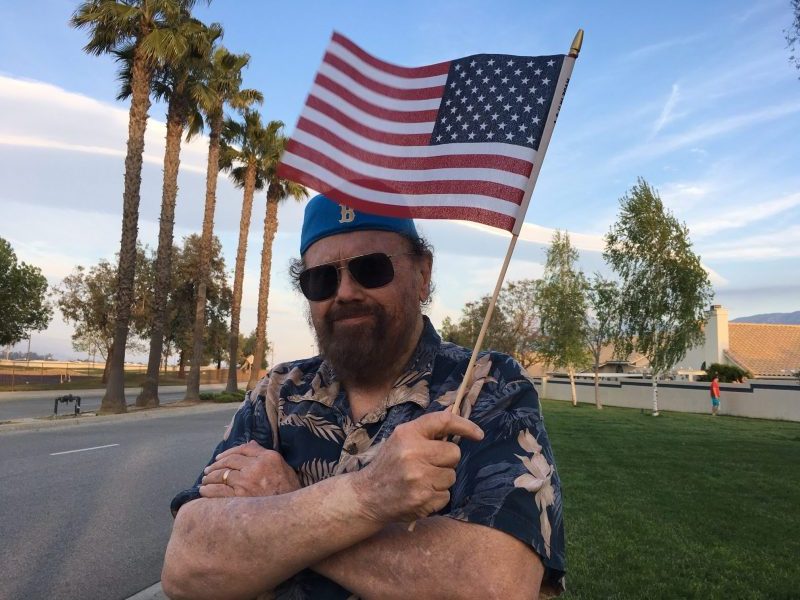
LIVE FREE OR MOVE
I hate rules. I understand why there are rules, I understand that without some kind of rules there would be social chaos. I understand that if we want civilization to function, we have to have rules.
But none of that means I have to like them.
Do you know who does like rules? Canadians, that’s who. And the Swedes. The Swedes like rules even more than the Canadians. I know what you’re thinking. Canada and Sweden are always being held up as countries that have it all together – much more advanced then we are here in the United States of America. Baloney.
You’re probably also thinking, you can’t just take a whole population, millions of people, and stigmatize them with a board brush. I admit that you’re right. There are some Canadians and some Swedes who hate rules as much as I do.
Those folks need to get the heck out of Canada and Sweden and move to the U.S., buy themselves some guns, start cheating on their taxes, and driving over the speed limit. Welcome to America.
I once worked with a Canadian who had migrated over the border and got a job in the United States. He believed that the rules were the rules. He said if he was driving someplace in the middle of the night with no traffic to be seen, and he came to a traffic light that was red, he would stop and wait for it to turn green, even if he was 100 percent certain there were no cops in the area. Why? Because it was the rule.
That’s just crazy. I remember a story out of Omaha, where a motorist complained to cops that he was sitting at a traffic light late at night when a couple of guys on motorcycles drove up, took out chains and beat on his car and broke out his windows. Why didn’t he just drive away? Because, he explained to the cops, the light was red.
A guy like that should move to Canada and maybe even Sweden if he doesn’t mind the high taxes.
The crazy thing about Sweden is that these guys used to be Vikings – warriors and raiders, who killed, looted, ransacked and ravaged. How they got to be a society of tax-paying, rule-following, politically correct yahoos is anybody’s guess.
Now, the closest I’ve ever been to Sweden is watching episodes of Wallander on soon-to-be-defunct PBS. The main character, Inspector Kurt Wallander, is a sensitive, soul-searching detective who runs around solving crimes and agonizing over just about everything that goes wrong in the world. The scenery is spectacular, the main character, kind of pathetic.
I ended up wanting to slap his face and tell him that if he wants to be a cop, he has to toughen up and start acting like one. Start shooting people who need to be shot, beating up people who need to be beaten, and making love to beautiful women without feeling guilty about it.
Now you’ve got a show.
– George Lee Cunningham
Do you have a dissenting opinion or any opinion at all on the subject? Contact me at george@georgeleecunningham.com and let me know. Meanwhile, you can always subscribe and get an email reminder of blog postings. Your name will not be shared and you may cancel at any time.
-
The Wasteland Spreads
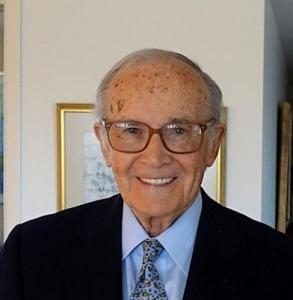
NEWTON NORMAN MINOW
“When television is good, nothing — not the theater, not the magazines or newspapers — nothing is better. But when television is bad, nothing is worse. I invite each of you to sit down in front of your television set when your station goes on the air and stay there for a day without a book, without a magazine, without a newspaper, without a profit and loss sheet or a rating book to distract you. Keep your eyes glued to that set until the station signs off. I can assure you that what you will observe is a vast wasteland.”
On May 9, 1961, when Federal Communications Commission Chairman Newton Norman Minow said that in a speech to the National Association of Broadcasters, it made a lot of people angry. Because when you criticize what people come home, sit on the couch, and enjoy every night, you’re really criticizing them. In truth, Minow was an elitist, who was saying to the great unwashed masses, if you enjoy this, it just proves how stupid you are.
Kind of like what Hillary Clinton said to the deplorables.
People were not happy with Minow over that speech. Author Ayn Rand criticized Minow for using his government position in an attempt to censor and influence what people watch. And the producers of Gilligan’s Island named the boat that left on a three-hour tour and never returned the S.S. Minnow in a sarcastic tribute to the man. Despite all the controversy over his speech, Minow’s description of a “vast wasteland” became a term that is still remembered more than 55 years later. And since that time the “wasteland” has grown even bigger.
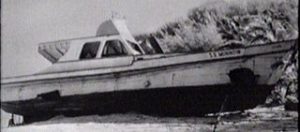
S.S. MINNOW
I would say that if Minow weren’t alive today, he would be spinning in his grave, but the truth is, he is still alive – 91-years-old – and still practicing law. And half-a-century later, the wasteland is bigger than ever.
Minow was a politically savvy political operative before he became FCC chairman. He worked on both unsuccessful presidential campaigns of Illinois Governor Adlai Stevenson in 1952 and 1956, then later on the successful 1960 campaign to elect President John. F. Kennedy president. Kennedy appointed him to lead the FCC.
Minow also backed Barrack Obama when he ran for president in 2008. In fact, it was Minow who hired Obama back in 1988 to work as a summer associate at Minow’s firm, Sidley Austin LLP. And that’s where Obama met his future wife, Michelle Robinson.
I think Minow was right about television. It does cater to the lowest-common-denominator. And the more it does so, the lower the lowest common denominator gets. Now you have shows that feature people of all races and backgrounds, behaving badly and becoming semi-famous for it. And as the lowest common denominator sinks ever lower, society in general follows it down.
We live in mean-spirited times, and I do give TV credit for much of that.
On the other hand, you always have people like Minow going around, telling other people what they should and should not like. What they should read, what they should watch, and how they should feel about things. That’s fine for a private citizen, but when the government starts deciding what people should like and not like, it is overstepping its bounds.
I do think Minow was right about television. But I also think he probably should have just minded his own darn business.
— George Lee Cunningham

